These men and women entered the year with not much more than a handful of dreams. Today, they tell us how they turned things around and the lessons they've learnt

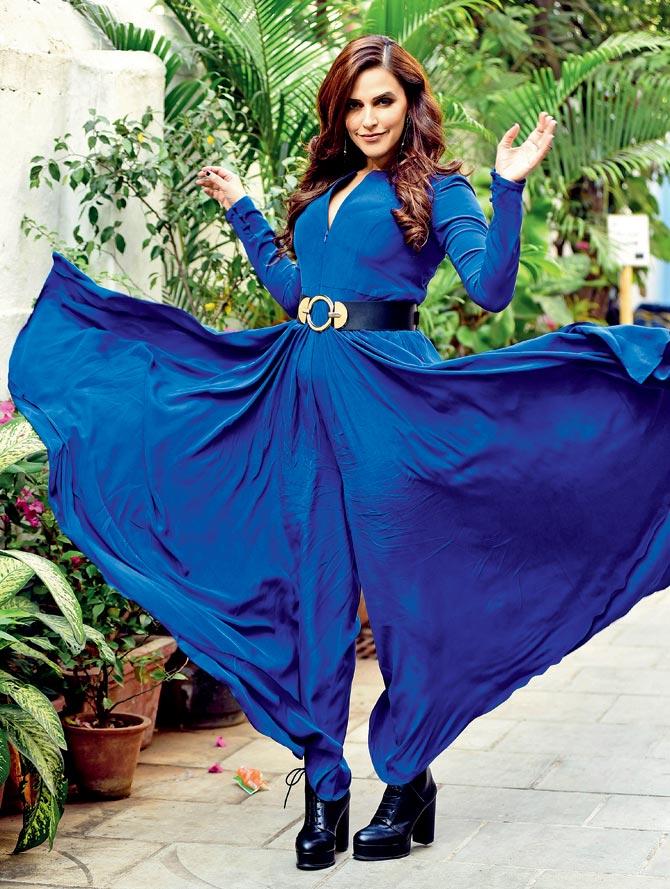
Neha Dhupia
ADVERTISEMENT
'You have to get up every day and hustle'
Neha Dhupia, 37
Actress
2017 Rocked beacuse: From being on the sidelines of the film industry, she went on to host a massively popular podcast, No Filter Neha, and won an award for the best supporting actress for Tumhari Sulu, ending the year hosting a show for a leading fashion magazine
At the end of 2016, Neha Dhupia found herself in a slump. "I saw myself sitting at home with no work, I was beating myself up for no fault of mine, and I saw it reflecting on it my mind and body. I had a flash, where I asked myself, 'is this is the end?' That was a very scary moment, and I knew I had to turn it around. I couldn't let it be the end, I couldn't go back to where I had come from," says Dhupia, as we talk on the sets of the chat show she hosts.
Dhupia, dressed in a flowing blue dress, today looks like a woman completely in charge, of her life and career. But, even though she won the Miss India title in 2002, the turnaround in career, she says came on January 1, 2017, when she was on holiday in New York with bestie Karan Johar. "Karan and I were having coffee and I said to him 'you are serving me coffee, and you have the Midas touch. So, just imagine what a year it's going to be. I am going to make this a tradition," she laughs. Since then, Dhupia has hosted a podcast, starred in movies (Tumhari Sulu, English Medium, Qarib Qarib), hosted Roadies, is the new host of BFF with Vogue, and has been inducted and firmly established as a Bollywood insider, personally and professionally (she is also in Johar's next movie). "I hate being called a Bollywood insider - I just host a show where I interview people. Karan has been a friend for a long time now - I would describe him like nobody would believe - simple, that's what he is."
Her down-to-earth demeanour is only accentuated by her never-say-die attitude. It's no wonder then that the Army brat, who has starred in the controversial Julie (2004), has managed to stick around for 15 years. "I realised that if I was not satisfied by the work I am getting, I had to create my own work. I am semi famous, I have some contacts - I am going to make the most of it. You've got to get up and hustle every day. Some things have done well, but there are also hundred things I did that didn't work. The beauty of failing is that you have tried." The year ended on a bang with her winning a film award for best supporting actress for Tumhari Sulu. "I dedicated the award to every one who was standing on the sidelines. There is no more an outsider in this industry than I am. I have no background in films, my first job was to change shoes of models back stage. I have so much gratitude for this - talking to you, the photographer taking my pictures, this AC trailer, I am so thankful for every single thing."
But, Dhupia is quick to point out that it wouldn't be possible without her discipline and Army upbringing. "The biggest question on my group chat with my team is 'when do you sleep?'. I can't get into bed to sleep - I only pass out when I am exhausted." At the end of it, she says, it's not just about your work, but also your confidence and strength. "Whether it's the youth who look up to me thanks to Roadies, or women who like the way I dress - You never know how you are impacting people."
By Aastha Atray Banan
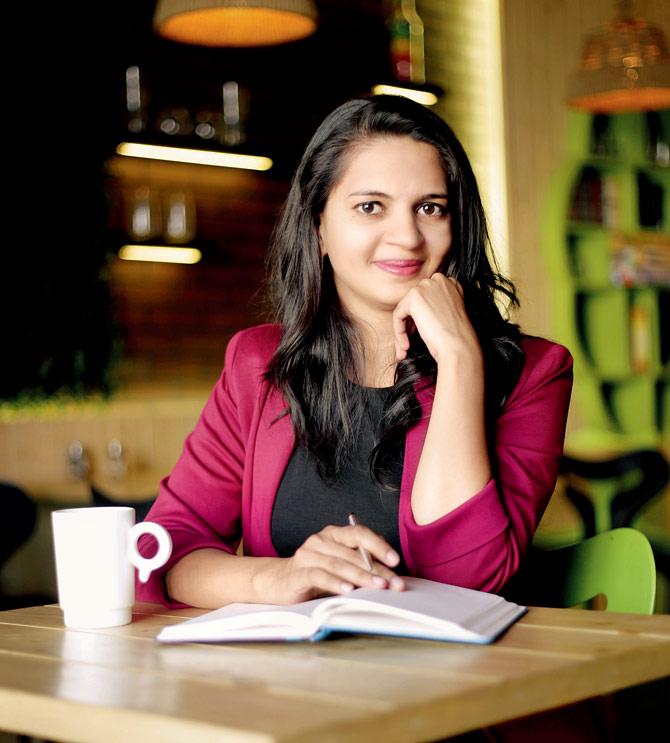
Savi Sharma
'I focused on the positive feedback'
Savi Sharma, 24,
Self-published author
2017 Rocked beacuse: She bagged a deal with Westland for her second book, This Is Not Your Story, which sold over 1.5 lakh copies
The confidence that Savi Sharma oozes for a 24-year-old is almost uplifting. Two years ago, she changed the way the publishing world saw young, independent writers, when she managed to sell a record 5,000 copies of her first book, Everyone Has a Story. The book catapulted her to the bestselling list, making her India's first, leading successful self-published writer.
Her second book, This Is Not Your Story, published by Westland in March this year, did phenomenally well too - it sold one lakh copies, five months into its release. While one might describe it as beginner's luck, Savi says it was built solely on faith and belief in her work. Otherwise, it would be hard to explain how a young girl from Surat, could have made a name for herself, when many others like her still struggle to get themselves published. "The truth is that I never set out to be a writer. Yes, as a child, I loved writing essays and poems, but until college, I had not even picked up a book. I developed the habit of reading when I was in my late teens in college, where I was pursuing a degree in commerce. I don't know when or how I got bitten by the reading bug, but suddenly, I began reading a lot. There was a time, when I would read at least 12-15 books in 10 days. It's somewhere around that time, that I felt that I could tell my story too and began working on my book," she says of the story behind how the first book happened.
Unfortunately, when it was ready, Savi didn't think it would be good enough, and set out to write a new one from scratch. "In all this, I was clear about one thing - I wanted to self-publish my work. So, I never bothered approaching publishers," she says. After Everyone Has a Story - a fictional account of four individuals following their dreams - was finally ready, Savi got in touch with a printer in Delhi, and published 2,000 copies. "Some people would have found my confidence silly, but honestly, I always believed in my work. I knew that once my readers had read what I had to say, it would open new doors for me," she says. Meanwhile, she and her friends started vigorously using social media to create a buzz about the book. As predicted, the book bagged Savi her first publishing deal. Not only did Westland decide to re-print her debut novel under their banner, they also signed her for the next.
Success came swiftly, but she also received a lot of brickbats. "Many people spoke very harshly about my writing and so-called lack of talent in the online reviews. While it did affect me in the beginning, it also made me anxious about how my second book would be received. I felt bogged down by the pressure to prove myself again," she recalls. But, all that criticism didn't dampen her spirit. As a defence mechanism, Savi started focusing on all the positive feedback she got for her first book. "I remember once, after reading my book, a young man wrote to me saying that he was about to commit suicide, when he accidentally chanced upon my book, and that after reading it, he decided against taking that drastic step. That choked me. Here, I was thinking I wasn't good enough, while my words had saved someone from the throes of death. I told myself, 'If there is someone you need to write for, it's for people like them because they believe that your words have the power to heal.'"
By Jane Borges
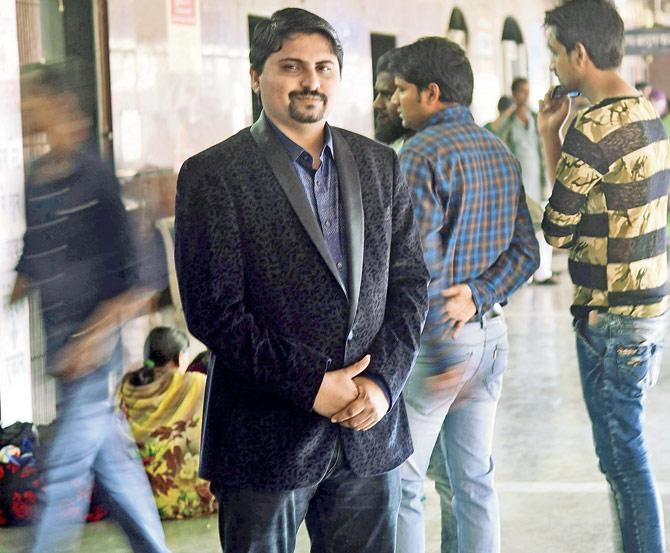
Dr Rahul Ghule
'Till date, we have saved over 650 lives by providing help at the golden hour'
Dr Rahul Ghule, 32,
MBBS Doctor
2017 Rocked beacuse: He set up the country's first Rs 1 clinics across Mumbai
Sitting inside his a 10x12 clinic located on platform no 6 at Dadar Station (Central), Dr Rahul Ghule has little time to spare. On an average, the 32-year-old treats at least 100 patients in a day, comprising a mix of travellers, daily commuters and the area's residents. "The numbers have only grown in the last eight months," he says. An MBBS from Parel's KEM hospital, Dr Ghule revolutionised the concept of affordable healthcare by launching the country's first R1 clinic at Ghatkopar railway station in May this year with the help of his brother Dr Amol, director of the project. Within months, the concept was replicated across 10 stations on the Central Line and Harbour Line including Dadar, Kurla, Ghatkopar, Mulund, Mankhurd, Mumbra, Thane, Vashi and Wadala stations. "Till date, we have saved over 650 lives by providing speedy medical help at the golden hour, because this also doubles up as an emergency medical room to the railways," says Ghule. While the consultation fee is R1, the medicines are provided at subsidised prices. A discount of 40 per cent is offered on pathology tests, 20 per cent on medicines and almost 50 per cent on MRI and CT scans.
The idea of setting up the clinic occurred to him in 2014, when he was working as a medical officer at JJ Hospital in Mumbai. Working at a public hospital meant he couldn't be involved in private practice. That's when he decided to open a charitable clinic in Machimar Nagar, a slum near Colaba. "Most patients who visited the clinic didn't have money for treatment. I learnt how unaffordable the healthcare system is in our country. I wanted to expand my services to that section, but there I couldn't do it singlehandedly," he says. It was around this time, that his parents met with a road accident. "There was no hospital on the highway. My mother, who suffered severe injuries, took long to recover. At the time, I truly understood the misery of the patient," he says. The chance to collaborate with the railways was a sheer "coincidence". Through sources, he found out that the railways were mulling the idea of installing an emergency medical room, and got in touch with them. "Around 10 people die at the stations every day in accidents, and many more suffer serious injuries and disability, therefore it was much needed," he says. On two occasions, doctors at One Rupee Clinic have helped with deliveries at the platform when women passengers went into sudden labour. They have also got a few cases of cardiac
arrest, in which timely intervention saved lives.
A couple of months ago, Ghule found himself in a tight spot after an altercation with the Railways over the location of the clinics. "The clinics need to be situated in an area where people notice them. It's pointless relegating us to a corner. We had a chat with the authorities, and they agreed," he says. Ghule's mission now is to take the venture to the grassroots level. He plans to open it on a taluka-level soon.
By Anju Maskeri
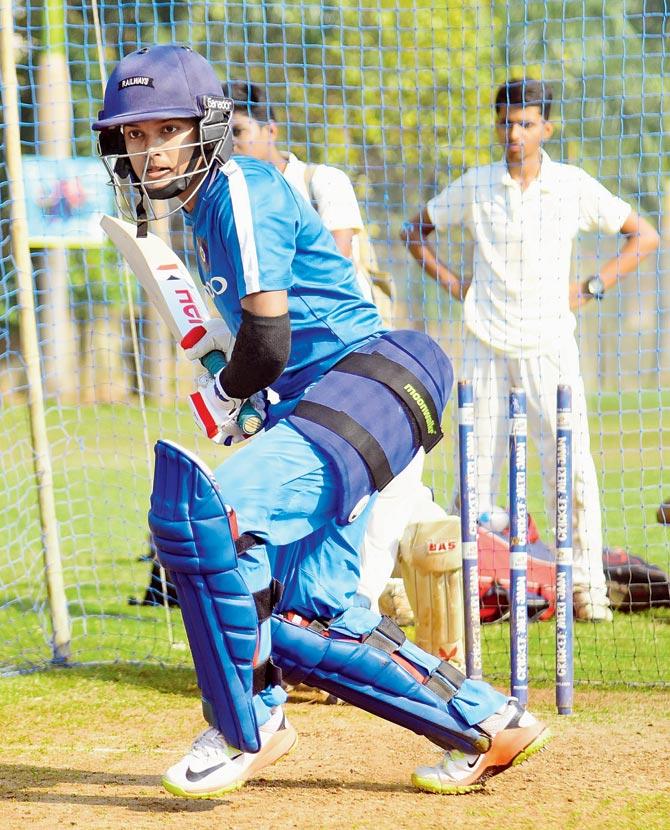
Punam Raut
'I knew I had to be in the 2017 World Cup squad'
Punam Raut, 28
Batswoman, Indian cricket team
2017 Rocked because: She became one of the highest scorers for the team in the 2017 World Cup
On a phone call from Gujarat where she's playing a series of matches, Punam Raut lists three international series held last year: One in October against the West Indies, the World Cup qualifier and the Asia Cup T20 series. But, these are matches she didn't play. Having lost form and not making adequate runs through 2016 meant that Raut, who debuted in the national cricket team in 2009, had to sit out for a few months until December.
But, the girl from Borivli, who till the age of 10 was playing gully cricket, didn't let the time go to waste. "When I wasn't in the team I figured I have nothing to lose. I just wanted to play. I figured I have to go out there and express myself and play bindaas," she tells us. Concentrating on her fitness was number one priority. She already was training under Amogh Pandit who put her through the running and diet rigors. "I also worked on skill improvement such as batting grip etc. I didn't get success immediately. In fact, in the initial matches I failed. That's when I was dropped from the team." That's when she pumped in more energy, practising the big shots and improvising on field. "I knew I wanted to be in the World Cup squad for 2017." In January's T20 series, Raut was the highest run getter. Then I got chosen for a South Africa series in May 2017, and that was my true comeback. Here, I scored 320 runs in a partnership with Deepti Sharma, setting a world record."
Expectations were high. Confident with match victories over New Zealand and Australia, the Indian women's team felt that the World Cup dream was achievable - they played the finals in July this year against England, which won by nine runs. Despite the defeat, Raut came through as top-scorer for India with 86 runs in this World Cup final. However, the Indian team had started off well, with a win that probably put them out of the step-daughterly treatment that women's cricket is given in the country. The team beat arch rivals Pakistan by 95 runs, weeks after the men's team lost. "It was the Pakistan win that got us recognition. Sitting in England we had no idea what was brewing back home. My family told me that my photographs had been pasted all over the colony and the area we lived in," laughs the right-hand batswoman, who at 47 runs, was the highest scorer in the match.
The team strategy she says was to win each match. "When playing the semi-finals, we weren't thinking of the finals. We wanted to play well," adds Raut, who, in her younger days, didn't dream of playing professional cricket until she saw the team on television, and decided she wanted in on the action. The team didn't lift the World Cup, but its performance did what else had done in previous years: bring recognition to a team that's always played second fiddle to the men's team.
By Gitanjali Chandrasekharan
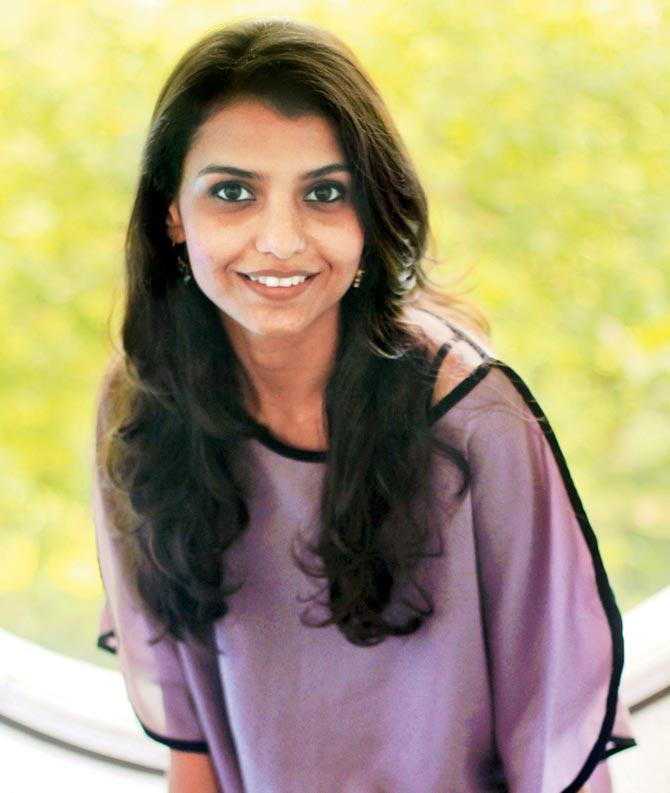
Natasha Jeyasingh
'It started as a personal endeavour, but people joined along the way. It took off from there'
Natasha Jeyasingh, 36, and Nathan Wadhwani, 30
Art consultant and software engineer
2017 Rocked because: They launched a successful art walk through the city's art shows
In Mumbai, Art Night Thursday is something of a tradition. Art lovers look forward to the first Thursday of every month when there are new show openings, artists to meet and greet, and when galleries stay open a couple of hours later than usual. This monthly soirée came in handy for Carpe Arte, a collective that has infused new vigour in the conversation surrounding art in the city. "There are many who wish to come by a gallery, but cannot because of the closing hours. That's why the existing Art Night Thursday is great because working professionals get to see exhibitions which they would otherwise miss. Moreover, there are visitors who are not from an art background and may have inhibitions regarding visiting a gallery," says art consultant Natasha Jeyasingh.
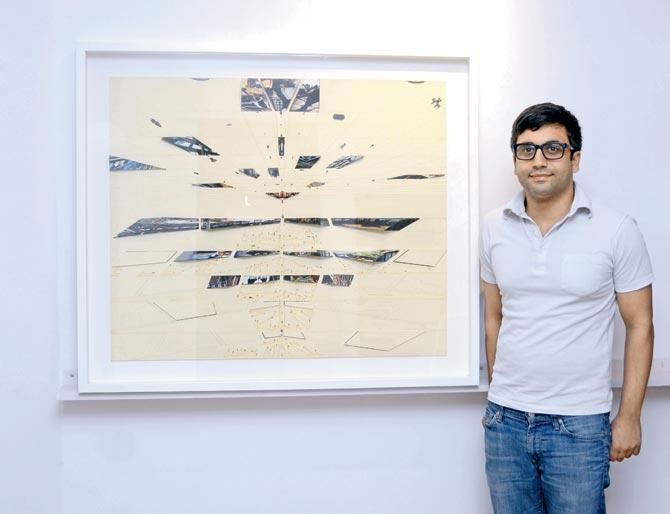
Nathan Wadhwani
Jeyasingh, who has been based out of Mumbai since the last four years, is the co-founder of Carpe Arte, along with Nathan Wadhwani. Rather than 'establish' the group, they say that it grew organically from conversations between likeminded enthusiasts. "We wanted to get people talking about art," says Wadhwani, a software engineer who moved to India three years ago. Both of them Bandra residents, Wadhwani met Jeyasingh when he wished to know more about Indian artists. A crash course involved making routine visits to galleries, many of which are located in Fort and Colaba, showing contemporary works. This was around November last year. By March 2017, the duo launched a group on Facebook, and were joined by likeminded art professionals and young collectors. "We didn't expect it to grow the way it has, but it did. It started as a personal endeavour, but more people joined along the way and it took off from there," says Jeyasingh.
Today, Carpe Arte - a name inspired by 'seize the day' - is a bustling group that conducts walks on Art Night Thursdays as well as new show openings. No membership is required to join the group or its walks, though. "We spent a considerable amount of time before we launched, on whether to charge people for the walks. We decided to keep them free as we would like to encourage more visitors to come forth. A fee may just dissuade an already moderate crowd," says Jeyasingh. Apart from the walks, Carpe Arte now programmes studio visits, which are much sought after by the community. In the past year, they have visited Shilpa Gupta and Atul Dodiya, among others, offering participants a chance to directly interact with artists and understand the spaces that they work out of. "Our idea is to focus on the art scene, but also the alternative ones, like Clark House Initiative - spaces that are not commercially focused. Building an art movement is important and it can grow only if everyone is involved," says Wadhwani. Besides, their Facebook group functions much like an online directory of sorts - which shows to attend, which talks to watch out for, and plenty of candids from the gallery visits. In the latter half of the year, Carpe Arte became an outreach partner for the MAMI Mumbai Film Festival, too. Jeyasingh says they have plans to open chapters in New Delhi and Bengaluru as well.
The real challenge, say both, is that the group has flourished while they have held jobs alongside. "We don't do this for a living but, at this point, our group isn't independent enough to run on its own. That's going to be the next thing we think about - how to get the community more involved in this," says Jeyasingh.
By Benita Fernando
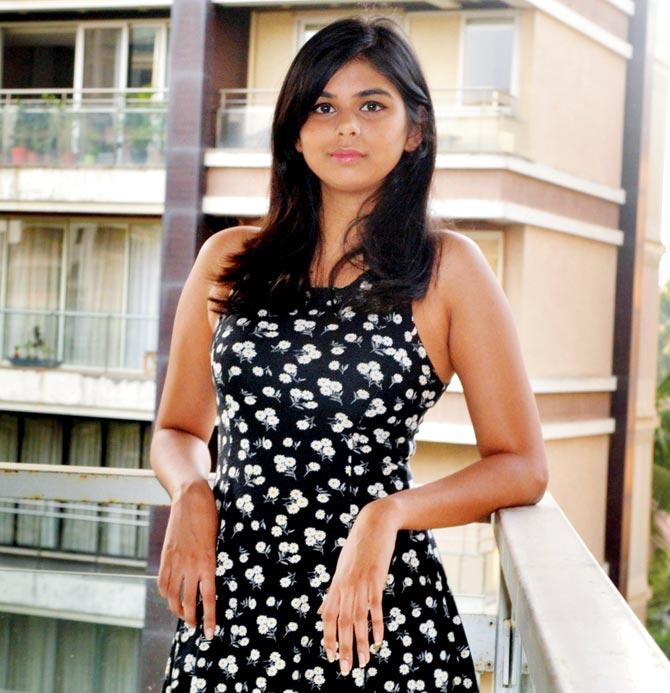
Aranya Johar
'My age didn't matter, what I was saying did'
Aranya Johar, 19
Spoken word poet
2017 Rocked because: Her poem titled 'A Brown Girl's Guide to Gender' went viral, making her a young person of note
It was in March this year when Aranya Johar knocked the socks off of the audience at Tuning Fork's poetry night. She recited a hard-hitting poem about misogyny and rape culture called, A Brown Girl's Guide to Gender, which went something like this: "My mom's telling me to wear skirts out less often. Nirbhaya and more, left forgotten. We don't want to be another of India's daughters, do we? So I wear my jeans long, and wear my tops high. Don't show my cleavage or a hint of my thighs. Don't want to be mistaken for wanting it."
The video went viral and today has nearly 20 lakh views. "It was the first time in my life that people were listening to me, despite my age. The fact that I was just 19 wasn't important; what was important was what I was saying." The young poet, who is pursuing her BA from Sophia College, wants to get into publishing one day, but for now wants to merely set a good example for the hundreds of young boys and girls who follow her. "After the first video I realised my audience was very young. I want to make sure they get the right message, especially since feminism is misrepresented in mainstream media. I want it to be correctly placed, and I want to talk about things that matter to them, like beauty standards (for both girls and boys) and the pressure all of us are under," she says.
Johar then made a Facebook page and now posts frequent videos (made in collaboration with Qyunki) and has live sessions. "The people who are tuning in want to talk to you. I could be your neighbour, or the girl you go for tuitions with - I am someone you know. At the end of the day, it's not about getting likes, but about a greater cause - it's about starting a conversation." But haters will be haters and Johar has enough of them trolling her, but the feisty youngster refuses to be bogged down. "There is no art in the world that is universally accepted. There are days when people make memes of me, and slut shame me, and then a young girl messages, 'you made me embrace my brown skin', and that just makes it worth it."
By Aastha Atray Banan
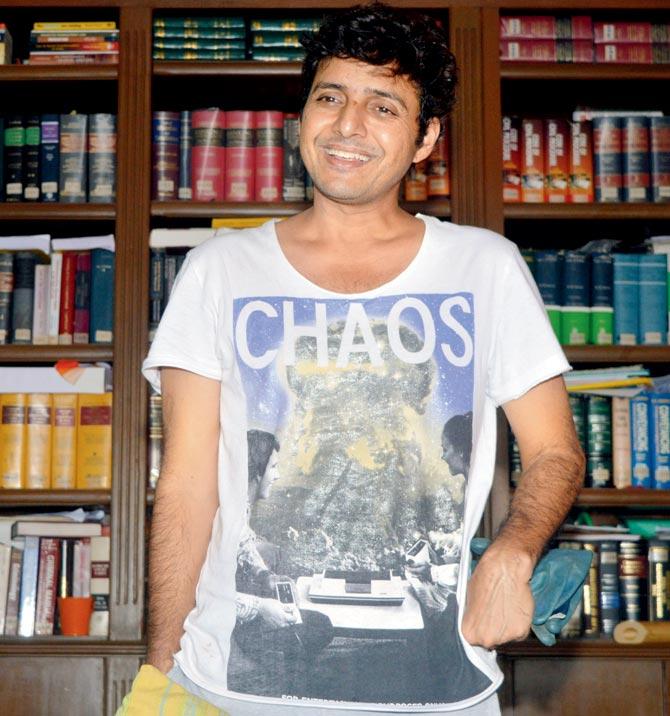
Afroz Shah
'We don't need a law to ban plastic'
Afroz Shah, 35
Lawyer and environmentalist
2017 Rocked because: The Versova clean-up movement, which he helms, got national and global recognition
There's much activity going on at the 10th floor home of lawyer Afroz Shah. On one side, there are volunteers mixing soil with coconut husk powder - helping Shah in his bid to revive a kitchen garden he'd been forced to ignore due to lack of time - and on the other, there are volunteers in an eager discussion with Shah about a weekend that needs to be planned. Schools where Shah will discuss marine litter, and, of course, the clean-up of the Versova beach, the results of which are clearly visible from his balcony. Always a resident of the Andheri locality, Shah, a constitution lawyer, moved into the house some time in 2015. Six months of being greeted by the piles of garbage that were dumped on the beach and regularly vomited back by an ocean not happy with human practices, Shah did what possibly no one else had done until then. He started going to the beach every Saturday for two hours to pick up the litter. It's not an easy task. If you manage to dislodge one plastic bag from the sand, there's another one waiting. What was first a Saturday exercise in three months became a Saturday-Sunday exercise.
"But, I was not on social media yet," says Shah, who now announces the weekly clean-ups - of the beach, the toilets in nearby slums and door-to-door activities discouraging residents from dumping garbage in the open - on Facebook, Twitter and a Whatsapp group. His first social media post, he recalls, was on April 16, 2016, announcing that week's clean-up. By then, Shah had already started getting a stream of volunteers. "We have been told to make time for our jobs, our education, but what about the environment?" He himself lives a zero-garbage life, going to the extent of ensuring that the food he orders in is packed in dabbas that he sends over, so that the plastic that accompanies is negated. "Why do we need laws to remove plastic from our lives? Why can't we do it ourselves? Carry a bottle when stepping outside, carry your own coffee mug, you won't need plastic." A boost to the movement came in May this year when Prime Minister Narendra Modi talked about the clean-up on his Mann Ki Baat radio show, prompting a national awareness for the work. As corporates started pitching in their staff for the weekly clean-up, politicians and celebrities took notice too. One of Shah's most well-known advocates is actor Amitabh Bachchan who has donated two excavators.
The clean-up, touted to be the world's biggest such exercise, also received world attention. Yet, just earlier this month, Shah, who calls himself a private person - "I don't post anything personal on social media" - announced that he was suspending the beach clean-up. "Aside from the heckling that volunteers faced, the garbage that we'd collected wasn't being picked up by the BMC. I sat for one-and-a-half hours on that tweet after I drafted it. My volunteers used a phrase I often do - 'sleep over it'," says Shah. "I didn't expect anything from the post. But responses started coming from all over the world, and four people swung into action. Hardeep Singh Puri, the Union Urban Affairs Minister; Aditya Thackeray, president of Yuva Sena; Erik Solheim, Executive Director of the United Nations Environment Programme; and Devendra Fadnavis, the Chief Minister of Maharshtra. They acted swiftly and decisively." Shah was asked not to suspend the activity, and help was assured. Garbage that had not been picked up in weeks was cleaned out in five days. He points to the beach. "Do you see those excavators cleaning the beach? They have been here since morning cleaning up," he says with pride.
By Gitanjali Chandrasekharan
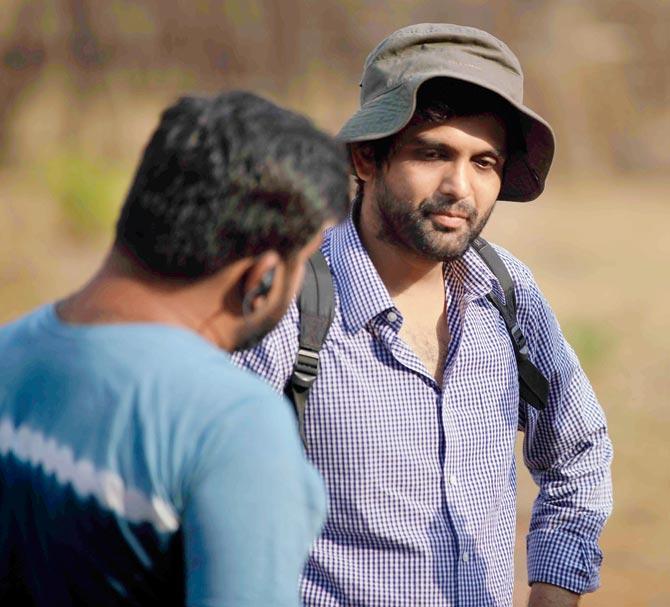
Amit V Masurkar
'I was sceptical how Newton would fare without much publicity'
Amit V Masurkar, 36,
Director
2017 Rocked because: His second directorial, Newton, was India's official entry at the 90th Academy Awards
Having tasted sweet success with his first film Sulemaani Keeda (2013), most people were expecting Amit Masurkar to continue making films in a similar humorous vein. "I would get offers to direct fun and breezy films, (like Sulemaani Keeda)." But, the idea of Newton was lodged in his brain and wouldn't go away. The film tells the story of the struggles that an election clerk goes through while trying to run a free and fair election in a conflict-ridden jungle of Central India. Along with co-writer Mayank Tewari, Masurkar spent six months working on the script. "During that process, we travelled to Chhattisgarh several times, interacted with lawyers, human rights activists, adivasi voters, politicians, police, administrators, surrendered Maoists - and their lived experiences became a part of the story. We met some wonderful people who helped us and their feedback enriched the screenplay," says the 36-year-old.
As unconventional as the story and script may have been, fortunately, for Masurkar, it was not an uphill task to take it on the floors. "I met producer Manish Mundra early on, so there was no struggle in finding someone to back the project. And it was Manish who suggested Rajkummar Rao's name for the lead. Rao read the script and came on board immediately." The team was confident of the product they had created. "The Indian audience is watching the best films and shows from all over the world. We have as many fans here for the Marvel universe and Game of Thrones as anywhere else. This audience is tired of the same old stories, which is why a film like Dangal or Hindi Medium does well. Newton is a unique story with a fiery young protagonist, and we were confident that it would do well too."
When the year kicked off, the film was ready for a festival premiere in Berlin. The buzz here was low-key and even close to its September 22 release, it was not anticipated to be a box-office success, no matter how much critical acclaim it had earned already, across 60 international festivals worldwide. Masurkar admits that he was not sure how the film would do in small towns, transcending multiplex boundaries. "Anand L Rai and Eros International came on board to present the film. It was Anandji's idea to release Newton in 450 theaters, including small towns. Until then, we were thinking of 120 screens; so, his confidence in the film was a big deal. I was a bit sceptical about how it would fare without much publicity, but he was always confident and was proven right. The film did exceptionally well in small towns."
As far as the film's role in the race for Oscars is concerned, it was announced as India's official entry for the 90th Academy Awards, the day it released, on September 22. "The Film Federation of India selects India's official entry to the Academy Awards. The voting members are representatives from film unions from all industries - Hindi, Tamil, Bengali, Marathi, Telugu etc." Is he a tad disappointed that it did not make it to the final list? "When we set out to make Newton, we had no aim but to make an honest film. In LA, we got an excellent reception from the press and members of the Academy. We were competing with the best films in the world, and the ones that made it to the shortlist are also very good."
By Kusumita Das

Nick Harrison and Alexis Gielbaum
'We wonder how we made this happen'
Nick Harrison, 32 and Alexis Gielbaum, 38
Restaurateurs
2017 Rocked because: They successfully opened a French-themed restaurant
The slow-braised masterpiece of French cuisine, as handed down to humanity by Julia Child through her seminal cookbook Mastering the Art of French Cooking, is beef bourguignon. So, why restaurateurs Nick Harrison and Alexis Gielbaum decided to revise the sacrosanct main course is something worth considering. "Beef is a politically sensitive meat over here. For our recipe, we decided to use buffalo cheek, which also happens to be an off-cut. We serve it with mustard foam and fondant potato. All the ingredients are classic French but served in a contemporary form," says Harrison. Harrison and Gielbaum are the brains behind the hugely successful Slink & Bardot, a French-themed restaurant that opened in May this year. Since it threw open its doors and its jazz tunes to the milling public, Slink & Bardot has come to define itself as the first word in contemporary French fare in the city. Right from its seared scallops to poached pear Belle-Hélène, word about its menu and cocktails has travelled far and wide from its Worli Village base.
Harrison, trained at Cordon Bleu, and Gielbaum, who trained at Lycee Rene Auffray à Clichy in Paris, say that 2017 has undoubtedly been the big year for them. It is, however, the crescendo to two preceding years when the duo wondered if there was light at the end of the tunnel. "Chef [Alexis] and I were working together since 2013-14 at Le Bistro du Parc in New Delhi and then transferred to Olive Bar and Kitchen in Mumbai. We loved working at both places but wished to introduce what we really wanted to do," says Harrison.
In late 2015, both quit their jobs. With a bank balance that was steadily depleting, Harrison says that their plan was clear - either find a partner for the restaurant they envisioned or take the flights back home to Canada and France. "We were completely and utterly broke, and were borrowing money from our friends," says Harrison.
In early 2016, the men organised a dinner at St Jude Bakery. Their hearts were on offer. At this pop-up, the menu was themed around the concept of redefining stereotypes of French cuisine. Their breakthrough menu caught the eye, and the palate, of Riyaaz Amlani, one of the top restaurateurs in the country. "Riyaaz loved it. We thought we'd open a spot with 60 covers, but Riyaaz was clear - go big or go home," recalls Harrison.
Today, Slink & Bardot has nearly double the intended seating. Gielbaum helms the kitchen routine as chef, while Harrison leads as manager. The restaurant, which bears the logo of a snail as a nod to the classic French ingredient escargot, invites diners to appreciate small plates, breaking away from the five-course format. "People often describe our restaurant as 'a hidden gem'. We hope to keep it that way," says Harrison. Statistically speaking, French food is one of the least well-received cuisines in the country. "But the city of Mumbai has been kind to us. On some days, Chef [Alexis] and I pop open a couple of beers and wonder how we made this happen," says Harrison.
By Benita Fernando
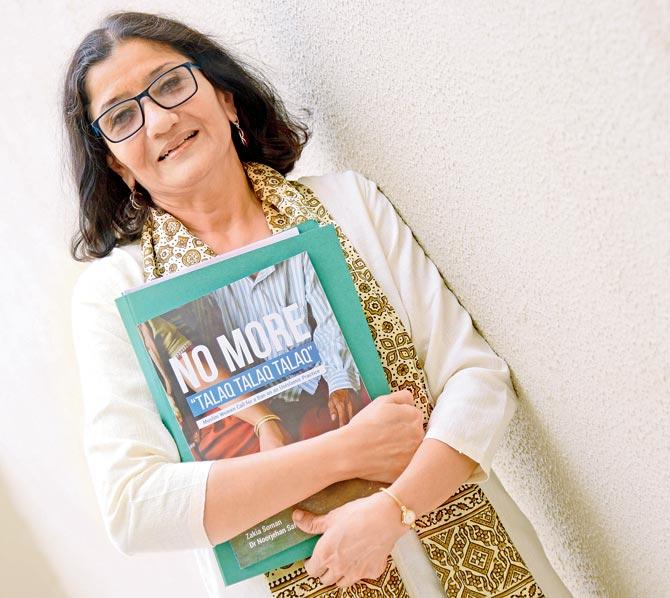
Zakia Soman
'We were demanding our democratic rights'
Zakia Soman, 51
Co-founder of Bharatiya Mahila Muslim Andolan
2017 Rocked because: The Lok Sabha passed a bill against Triple Talaq
Thursday afternoon was tense for Zakia. The co-founder of the Bharatiya Mahila Muslim Andolan (BMMA), which was established in 2007, was busy watching television as the Lok Sabha discussed the Centre's bill to ban Triple Talaq. It's a crucial discussion in the organisation's nearly seven-year struggle against this practice, which allows a Muslim husband to instantly divorce his wife by uttering 'talaq' thrice. "We started engaging with this issue in a focused manner around 2011 and, our first national meeting of Triple Talaq survivors in 2012 was attended by 500 women who'd come from 10 different states at the Mumbai Press Club." Since then, she has heard many tales, but the one that still shocks her was that of a young woman she'd met at Bhopal.
"She had a partial handicap in her leg and came from a very poor background and was very frail. Her father was a beggar and she'd been married for a year. One night, she slept after her husband didn't return till 12.30 am. When she woke up in the morning, her mother-in-law informed her that upset that she'd not waited up, her husband had spoken talaq. She had to leave the house. She wasn't even aware when she'd been divorced." But the struggle started as early as 2014 when the BMMA collected over 50,000 signatures of women across the whole country and wrote to the National Commission of Women and later made a similar representation to state women's commissions. In 2015, they wrote a letter to PM. "In 2016, an Uttarakhand resident Shayara Bano and later, Afreen Rahman, one of our members, filed individual complaints and in our petition we asked for class action and filed a PIL where we shared the case studies that came to us. We also shared with the court, a survey we'd conducted of over 5,000 Muslim women in which 92 per cent had said that triple talaq had to be banned. We also presented Quranic evidence and briefly presented the Constitutional argument against this." But, the road wasn't smooth. As the voice for gender justice became louder, with women from across religions joining in, attacks against Soman and others in the movement became personal.
"Someone created a nasty Whatsapp message about me, assassinating my character, calling me an agent of RSS - I am married to a Hindu - etc which was widely circulated even abroad. My brother who lives in the US received one and was horrified. Initially, the attacks were upsetting. Soon the fighter is awakened. This led to greater determination and vigour in the whole struggle." Other survivors wanted to be added to the petition to benefit others as well. Soman realised they were close to achieving their goal when the arguments that the personal law board filed in court were absurd - "triple talaq is better than a man murdering his wife". "There was nothing substantive in the arguments against us. So we were confident that we are right Quranically speaking. We were demanding democratic rights." This year has been a victorious year in the legal battle of this story. The Supreme Court declared the practice unconstitutional and when the bill was tabled in the Parliament on Thursday, even the Congress, the leading Opposition party supported it. "There's more to go, but this is the beginning of our victory."
By Gitanjali Chandrasekharan
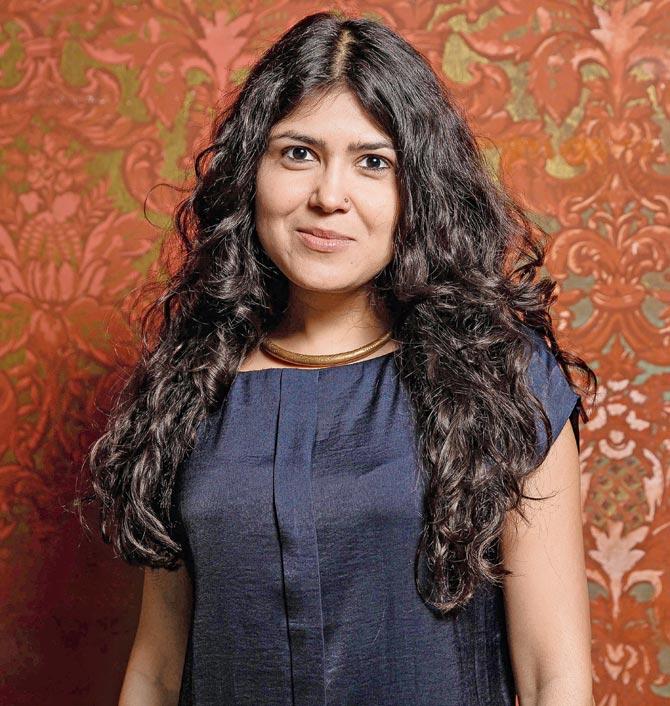
Natasha Ginwala
'The opportunity came to me because my peers are doing well'
Natasha Ginwala, 32
Independent curator and writer
2017 Rocked because: She became curatorial advisor for documenta 14
There are more and more women curators and critics who are demonstrating leadership and remain invested in a critical reading of contemporary art," says Natasha Ginwala who we saw in the role of curatorial advisor to documenta 14 this year. This was the first time that the prestigious contemporary art exhibition, held only once in five years, had a South Asian onboard as a curator. Ginwala, trained in journalism, and visual studies and aesthetics, is an independent curator and writer based out of India and the Netherlands. After a brief stint with a major production house in Mumbai a decade ago, she switched gears entirely to find her calling in
contemporary art. Now, Ginwala is progressively mastering the art of the biennial. "After years of working with other curators, and having been part of biennials in Taipei and Berlin earlier, I curated my first biennial with Countour Biennale 8 [in Belgium] in March this year," she says, over a call from Colombo. Associating herself locally and internationally, Ginwala has earlier been part of projects such as My East is Your West, an initiative of the Gujral Foundation featuring Shilpa Gupta and Rashid Rana at the 56th Venice Biennale.
Being signed up for documenta 14 by Adam Szymczyk, says Ginwala, has been a defining moment in her career. Szymczyk, a Polish curator, got Ginwala onboard in early 2015 as a member of the curatorial team. This year, the 100-day-long exhibition was spread across Kassel, Germany, where it has always been traditionally hosted, and Athens, Greece. With fewer outdoor works than previous editions, the exhibition managed to garner a tremendous response. At Kassel, for instance, was Marta Minujín's much-discussed Parthenon of Books, a monolith mimicking its Grecian namesake but built of banned books.
"Basically, it has been three years of research and preparation. It feels like part of a larger shift; documenta 14 involved extensive research and important recognition to South Asian contemporary art through major commissioned works and historical practices from India, Pakistan, Bangladesh and Sri Lanka," says Ginwala. True to her words, from India, this time at documenta, were works by Amar Kanwar, Nilima Sheikh and KG Subramanyan. The course of documenta 14 stirred up a fair share of criticism by leading journals and critics, including those that directly attacked the curatorial strategies. Ginwala says that the actual making of the exhibition also had practical challenges. Access to venues, many of which were historical sites, archives, and public institutions, and also the lack of public resources for the arts within the South Asian context, were just some of them.
"An international team strove hard to sustain public programming, regular publishing, local activities and education initiatives over the course of more than 100 days in Athens and Kassel, so this requires a certain endurance and collaborative spirit," says Ginwala. Ginwala may well be one of the few women curators to have achieved such recognition of a prominent international platform. "The fact that the opportunity came to me means that my peers are also doing incredible and rigorous work in institutions around the world - with museums, biennales and galleries."
By Benita Fernando

Archana Walavalkar
'It's all about customer experience'
Archana Walavalkar, 32
C0-owner, StyleCracker
2017 Rocked because: Actress Alia Bhatt came on as an investor
At a time when online shopping has become the norm, it's hard to break the clutter. But StyleCracker has done just that. What started off in 2013 as an online style aggregator that would recommend style options based on your personality, in June also became a personal stylist that delivers SC boxes to your doorstep which have everything you need for an outfit. The year also ended with a bang when actress Alia Bhatt, who had shown interest in the website, decided to come on board as investor with co-founders, stylist Archana Walvalkar and ex-investment banker Dhiman Shah.
"Alia and I began our careers in films together five years ago when we did Karan Johar's Student Of The Year. I had been working for fashion magazines, and then started freelance styling with actors like Deepika and Aishwarya," says Walavalkar, when we meet her at her Wadala office on a Wednesday afternoon. She adds, "We started off on this journey, and I have learnt so much from her and Karan. Working with Alia has always been inspiring as she is big bubble of energy and ideas. We update her on a weekly basis, and she is always brimming with ideas." The soft-spoken stylist, who is always impeccably turned out, is committed to her cause - empowering homegrown brands and helping the real woman find her style. "There is enough fashion for everybody in India, but there is not time enough to sift through it. StyleCracker wants to be that person you can rely on, and it's all tech enabled." The website - its algorithm works on the data you supply regarding what you like and don't - acts like a personal stylist which either suggests an outfit to complement your style or urges an experiment. This year, they pushed the envelope and started sourcing the outfits for their clients.
"Most women have low-self esteem - in the comment section, they say things like their arms are flabby, their boyfriend and husband have told them they are fat, and they body shame themselves. When we saw their pictures, we were shocked as they are gorgeous. It's empowering to give them that joy - that they could look and feel good," she says. Walavalkar knows the secret of her success - the fact that customer satisfaction is of upmost importance. "It's all about customer experience. Since Alia came on board, the audience is more massy and younger. It's completely different from what I was used to at fashion magazines. It's a parallel universe. I think it's a lot more real. Runway is inspiring and trendsetting, but at the end of the day, it's about that real girl with a real life and real problems. I genuinely wanted to address a need and help people, with the expertise I have, and that's what StyleCracker is about."
By Aastha Atray Banan
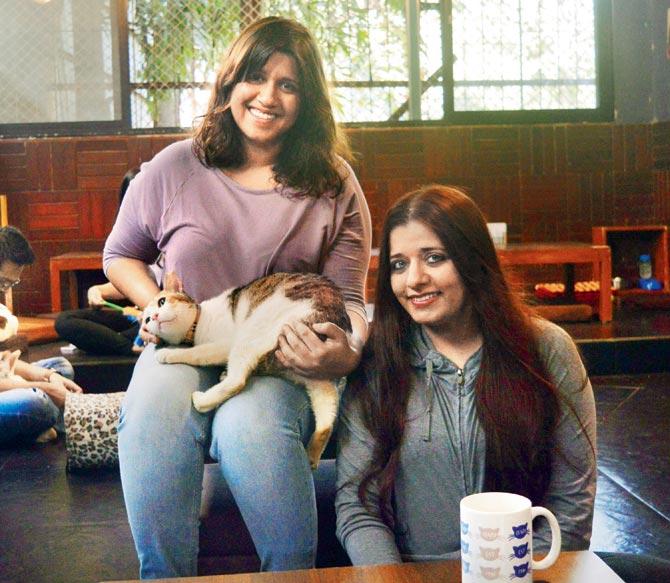
Mriidu and Charu Khosla
'Juggling rescues, coffee and performances is challenging'
Mriidu, 34, and Charu Khosla, 31
Filmmaker and entrepreneur
2017 Rocked because: Set up India's first cat cafe in Versova
The last time we visited Cat Cafe Studio (CCS) in Aaram Nagar was in June 2015 when it wasn't a cafe, but the premises of Zcyphher Studio, a film production house moonlighting as an animal shelter. Lodged on the top floor of Bungalow number 69, it housed 15 felines, most of them accident survivors. While the entry was free, so was the cup of coffee. Cut to 2017. CCS is now a full-fledged café with a performance space choc-o-bloc with events ranging from comedy nights to musical gigs and dating dos. When we visit the space - now 2,200 sq ft - on a December morning, we spot a lot more cats sprawled lazily on tabletops, others napping in cubbyholes. "From 15 we now have 55 cats," says founder Mriidu Khosla, who studied filmmaking in New York, and returned to set up the studio in 2010. Up until last year, the money made at Zcyphher was pumped into rescue activities and providing a free cuppa to the occasional visitor. "But, the visitors kept increasing. Then we decided that, may be, it's time to take it to the next level i.e. we need to stop letting Zephyr babysit Cat Café and find a way to make it more self-sustaining," she adds.
The team of 12 that runs the café was clear that the intention was more about rescues, adoption and creating a dedicated space for animal lovers. "The visitors themselves gave us this idea by offering to pay for tea and coffee and provide for at least a wet meal for a cat. Moreover, we realised that not all those visiting us wanted to adopt. Some just wanted to spend time and learn more about cats," says Mriidu's younger sister and co-founder Charu Khosla, a former dentist who doubles up as the go-to medical advisor for cats and dogs at the cafe.
In February this year, they moved into a bigger space in Aram Nagar Part 1, where the ground floor was dedicated to cats, the café and the art studio, while the mezzanine floor became a work space. "We thought it would be a gradual transition, but we were thrown into the deep sea from day one," says Charu, referring to the increasing footfalls that range between 70-100 on weekdays and over 200 on weekends. The staff comprises college goers and professionals who volunteer. "We want to encourage dignity of labour, which is why we don't have conventional servers here. We even have a staffer who is working with us because she suffers from social anxiety. Interacting with people while being around animals is a great way to handle it," she adds. While the coffee and savouries are prepared by an-house chef, the cakes are baked by their mother. Considering the team has almost zilch experience in hospitality, running a coffee shop is new territory. "Juggling rescues, ensuring that your coffee is ace and featuring artistes' performances is challenging. We are multi-tasking at a whole new level, but we are learning the ropes," she adds. While proceeds from the coffee shop are channeled into the purchase of cat food, medicine and surgeries, the money made from the performance space is used for sterilisation activities.
Not everyone who visits is okay with the feline presence though. "We get a few who scream at the sight of a cat. We don't want people to shoo them away, so we politely ask them to adhere to our rules while here," says Charu, who plans to open an animal clinic within the premises.
By Anju Maskeri
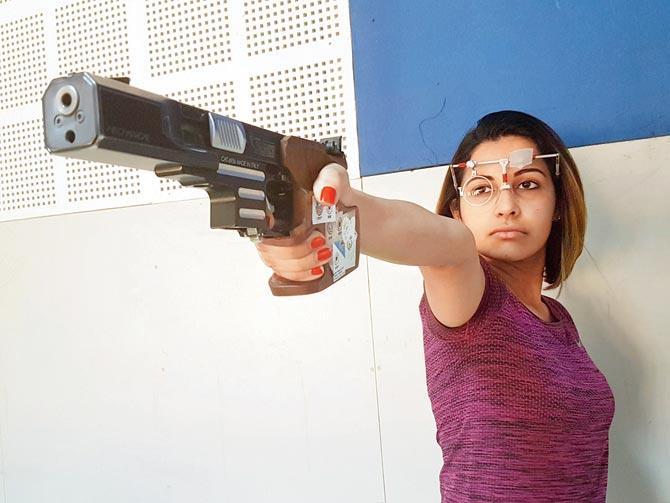
Heena Sidhu
'I have to go in with the mindset of a learner'
Heena Sidhu, 28
Pistol shooter
2017 Rocked because: She won a gold medal in the Commonwealth Games and in the World Championship
The January of 2017 could well have been the worst month Heena Sidhu had ever lived through. The trials for world championships were on and she had clocked in the lowest score. This was damaging for her stature, having been the first Indian pistol shooter to reach number one in world rankings, three years ago. "I had two back-to-back trials, and after that day's score, I did not want to shoot the next day. I thought maybe I should take the year off and concentrate on my basics. My husband [Ronak Pandit, also her manager] told me to just go and shoot - that it wouldn't matter if I didn't get selected, as I was not expecting to. I returned the next day with my best score. In fact, it was the highest score," says the 28-year-old Indian pistol shooter. Sidhu realised that she did not need to develop a new skill, but just needed to train her mind. "I have to go in with the mindset of a learner."
The previous year had ended on a rough note with her fitness level was not up to the mark. "I had a disc bulge in the neck that affected the nerves, causing me to tremble. Trembling is a shooter's greatest enemy." Thereon, Sidhu concentrated on her fitness, going in for three to four hours of physiotherapy sessions daily. Her physiotherapists, in fact, travelled with her to every world tournament, starting in Delhi, to Czech Republic and Azerbaijan and finally at the Commonwealth Shooting in Australia, where she struck gold, literally. "There was rise and fall through the year, but I made sure not to stress the body too much. I kept learning from my mistakes."
Negative thoughts prevailed. "There was a time when I seriously contemplated hanging my boots. But then, I do lapse into these thoughts occasionally. And when that happens, I try to remind myself why I started playing the sport. No one starts out because they have a score in mind, they do it because they love it."
While guns may not be the first thing a girl would pick up to pursue as a hobby, the environment in which Sidhu grew up was far from the usual. Her uncle being a dealer in guns, Sidhu became familiar with a variety of guns early on, and, before she knew it, it had become a hobby. She studied to become a dentist, but finally realised in 2010, when she played her first Commonwealth Games, that her calling lay in pulling the trigger. "At the Commonwealth Shooting, I did not know I would win a Gold, but I knew that it was the kind of shooting that gets you a medal. I feel the first mistake we tend to make is to concentrate on results than our game. I just want myself to shoot well. Then, even if I come in last, I shall be happy."
By Kusumita Das
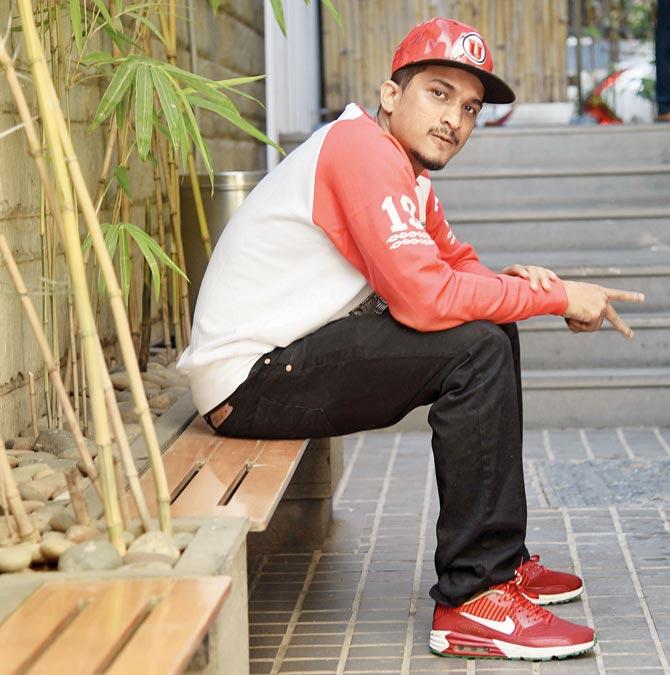
Vivian Fernandes
'The initial Bollywood offers didn't feel right, so I waited for my turn'
Vivian Fernandes
aka Divine, 26
Rapper
2017 Rocked because: Was offered an Anurag Kashyap film, and is part of a Zoya Akhtar film inspired by his life
For Vivian Fernandes, aka Divine, 2017 has been a year of big decisions. He quit the music label he had been associated with, went independent, turned consultant for Zoya Akhtar's movie inspired by his life, and has now been roped in to produce a song for Anurag Kashyap's Mukkabaaz. The breathless sequence of events are yet to sink in. "Frankly, I've barely had the time to process all of this because there's no time to sit back and relax," he tells us over a phone call. In the past couple of months, the Mere Gully Mein singer has been flitting in and out of studios working on his music. His EP will release in February and will comprise all the unpublished songs that he has worked on in the last three years. "All this while, I kept making a lot of music. It was necessary to build a base and strengthen my foundation," he says. While the label helped catapult him to the big league of India's rappers, there was also a gnawing desire to go solo. "I felt pressured to produce hits. Since music was the only thing I was good at, I felt I would lose everything if I failed at this," he says.
The desire to go independent came after the release of his single Farak, where he talks about his life and how he is surviving the game. "Everything about the song was so real. And, people loved it. That's when I felt I was ready to take the plunge," he says. But it wasn't a Bollywood break he had his eyes on. In fact, it was at the bottom on his list of priorities. "I knew movies would happen eventually. I turned down a couple of offers initially, because they wanted to use hip hop music as fillers in the film. It didn't feel right, so I waited for my turn," he says. Opportunity came knocking when Nucleya approached him for a collaboration for an Anurag Kashyap film starring Jimmy Shergill. The song Paintra is also the film's theme. Then came Zoya Akhtar, who wanted to make Gully Boy, inspired by Divine's life, and the underground hip-hop scene in Mumbai. Having turned consultant for its lead actor Ranveer Singh, Divine is happy that a movie will capture the 'real' rap scene in the country. "There is an untapped facet to Indian rap that will be explored in this film. Ranveer and I have been brainstorming on what to include. We want to go beyond women and drugs," he says.
The JB Nagar resident has also been travelling the country to understand the music scene in the smaller pockets. It's the grassroots that he wants his music to eventually reach. "I wanted to see how receptive they are to hip hop. If you go to smaller towns, they have one music show in one year. They are waiting for us to perform. The last time Nucleya and I performed in Surat, the turnout was astounding," he says. It's the reason why he has been made his music relatable. Having started off his career rapping in English, he now croons only in Hindi about social issues. "I have a story to tell. I am not making random songs. My music is for the street."
By Anju Maskeri
 Subscribe today by clicking the link and stay updated with the latest news!" Click here!
Subscribe today by clicking the link and stay updated with the latest news!" Click here!







